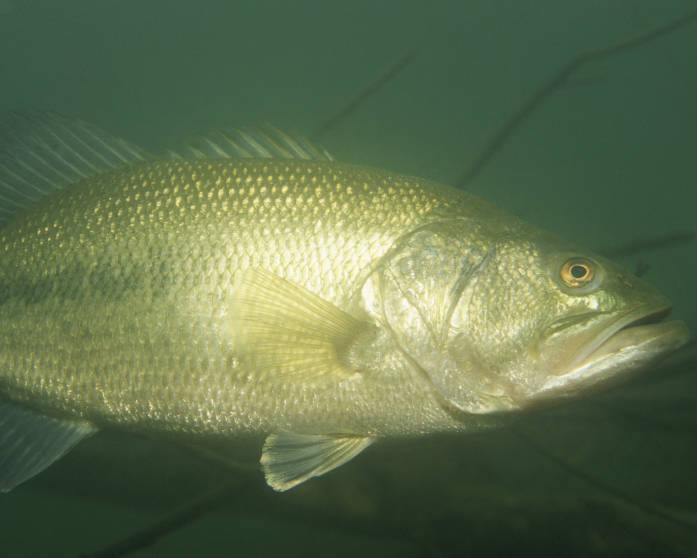Scientists detect aquatic ecosystem warning signal
 Scientists have found what appears to be the stress signals of a lake ecosystem that is on its way to collapse. Stephen Carpenter of the University of Wisconsin, Madison and colleagues carefully monitored the food web in a Wisconsin lake as they gradually introduced largemouth bass into the ecosystem. The researchers noticed a shift in the algae populations that were directly related to the altered feeding behavior of smaller lake fish after the addition of the larger predators.
Scientists have found what appears to be the stress signals of a lake ecosystem that is on its way to collapse. Stephen Carpenter of the University of Wisconsin, Madison and colleagues carefully monitored the food web in a Wisconsin lake as they gradually introduced largemouth bass into the ecosystem. The researchers noticed a shift in the algae populations that were directly related to the altered feeding behavior of smaller lake fish after the addition of the larger predators.
“Because the smaller fish shifted to shallow waters where bass threaten them less, [Carpenter] explains, the algae that inhabit the more open waters of the lake were free of their predators and their populations fluctuate more,” wrote Jennifer Carpenter in a Science Now article. “Carpenter and his colleagues report online today in Science that these fluctuations were a warning that the lake’s food web is changing.”
As explained in a National Science Foundation press release, the researchers “detected what they say is an unmistakable warning—a death knell—of the impending collapse of the lake’s aquatic ecosystem.”
“We start adding these big ferocious fish and almost immediately this instills fear in the other fish,” Carpenter said in the release. “The small fish begin to sense there is trouble and they stop going into the open water and instead hang around the shore and structures, things like sunken logs. They become risk-averse.” A big indicator, according to Carpenter, was a boom in water flea populations.
Carpenter and colleagues explained in the release that these signals are universal and could be incorporated into work on “rangelands, forests and marine ecosystems.”
Photo Credit: Eric Engbretson, FWS